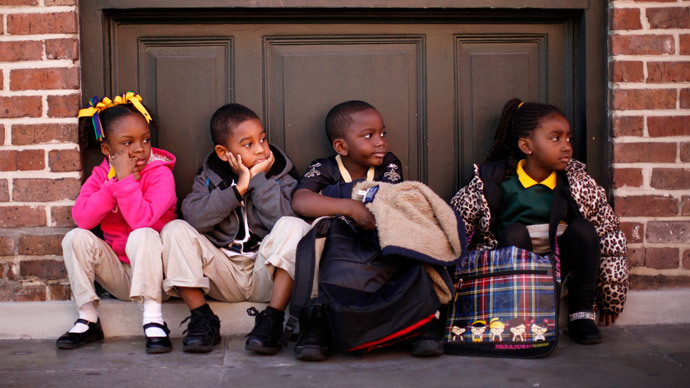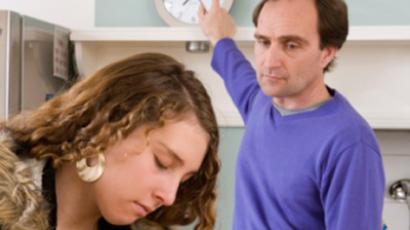Baltimore passes extremely strict youth curfew

The Baltimore City Council voted to impose one of the strictest youth curfew laws in the country on Monday, much to the dismay of neighborhood groups, civil-rights activists and public-safety experts.
Mayor Stephanie Rawlings-Blake has promised to sign the bill, which passed 13-2 Monday night as boos and chants of “no new curfews” rained down on the council, WBAL-TV reported. The new curfew requires children under 14 to be off the streets year-round by 9 p.m. Children 14 through 16 will be able to stay out until 10 on school nights and 11 p.m. on weekends and over the summer. This will replace the current curfew law, which allows all children and teens under 17 to stay out until 11 p.m. on weeknights and midnight on weekends.
"This is about taken them out of harm's way before a situation materializes where their being on the street becomes a law enforcement concern," Rawlings-Blake said, according to WBAL-TV.
The bill also extends the daytime curfew hours. The current law reads, “No minor under the age of 16 may remain in or about any public place or any establishment between the hours of 9 a.m. and 2:30 p.m. on any day during which the minor is required to be in school.” The new curfew will be 7:30 a.m. to 3:00 p.m.
Police will bring youths found in violation of the new time limits to a year-round youth connection center, but they will not be handcuffed or arrested. “This is not a criminal enforcement act by the police," Rawlings-Blake said on Monday, according to WBAL-TV.
Once there, they will be interviewed by officials, who will then contact the children’s parents or guardians. If the officials deem it safe, the violators will be returned home; otherwise they will be placed in the care of Child Protective Services, the Baltimore Sun reported. Parents will face a fine of $30 to $500 (up from the current $300), which could be waived if the family participates in counseling sessions provided by the city. The city hopes to open nine such youth connection centers in schools and recreation centers, one for each police district in Baltimore, according to WBAL-TV.
Tassie Makranczy, a Baltimore resident who teaches high school elsewhere in Maryland, applauded the move. “I’m really happy this passed. Underage kids out late at night when they have no need to be have been, and continue to be, a serious problem in Baltimore. A lot of the crime is being done by underage kids who have no business being out on the streets that late at night,” she said in a phone interview with RT.
“In my neighborhood, the big problem is kids out on the street way past late, making a lot of noise. They’ll be dressed all in black, walking down the middle of the street when I’m driving at 11 o’clock at night. It’s dangerous for them and it’s dangerous for me,” Makranczy continued. “Most of the crime being done in my neighborhood is being done by underage kids, like cars being broken into or a couple homes being broken into.”
But not everyone is happy with the new curfew. The anti-curfew contingent notes that the current law is often not enforced. And the American Civil Liberties Union of Maryland campaigned actively against the proposal.
“What these laws do is give the ability to officers to stop any young-looking person who is outside at a certain time and ask what they’re doing, ask for identification. It affects not only those who are explicitly covered by the curfew, but reaches older adolescents and young people as well,” Sonia Kumar, ACLU Maryland staff attorney, told NBC News.
“Police aren’t social workers,” Kumar added. “When we’ve talked to young people about their interactions with police, they’ve told a very different story about the nature of those interactions that suggest that in fact these situations will quickly escalate in ways that this bill’s supporters are choosing to ignore.”
Interaction between kids and police is a big concern for others as well. "There's already a huge amount of police brutality, with adults being targeted, but now police are going to have the green light to do the exact same thing to young people," opponent Colleen Davidson, a youth organizer of a group called Fist, told WBAL-TV
But Makranczy disagrees. “I think most decent teenagers would understand there is no reason to be out that late, unless they are trying to be in trouble,” she said. “The vast majority of kids who are being picked up now are already trained from a young age to avoid the cops or are heading down the path to be criminals anyway.”
Councilman Brandon Scott, who introduced the bill, thinks increased interaction will be a positive thing for the Charm City’s youth. “This is something that's going to help us connect the younger kids that are out on the streets that need the resources they need for their families,” he said to ABC2. “Even though we've had a curfew for over 20 years in the City of Baltimore but having school kids out at 11 p.m. during the school night is just too late."
Both supporters and opponents agree that the jurisdiction needs to provide youths resources, instead of just getting in trouble for being out after hours. The ACLU proposed an alternative to the curfew bill last Thursday, which would make the proposed youth connection centers more “youth-friendly, not associated with law enforcement or curfew violations, and have explicit, intentional policies to avoid unintentionally criminalizing youth,” as well as increase the availability of safe activities, work to identify target populations and high-impact solutions and more effectively use existing tools, including the current curfew.
“The city needs to give them some sort of things for kids to be doing,” Makranczy said. “There are a lot of working-class families where the parents are working second shift or sleeping, so we need city-wide programs to address that.”














